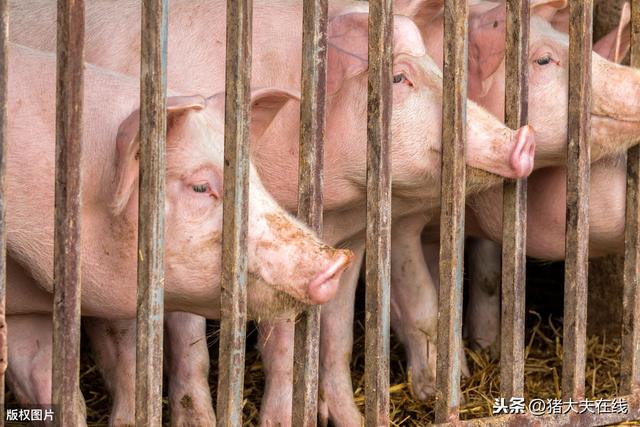1、I: The Subject
"I" is a nominative pronoun, which means that it is used as the subject of a sentence, or as a predicate nominative.
I是主格代詞,意思是用作句子的主語,或謂語主格
A predicate nominative (also called a predicate noun) is a word or group of words that completes a linking verb and renames the subject.
謂語主格(也稱為謂語名詞)是一個詞或一組詞,它補全了系動詞後的成分并重新命名主語。

比如說:
I went to the store.
我去商店。
In this case, "I" is the subject of the sentence - the person who performed the action of going to the store. This sentence is correct because it uses "I" as the subject.
You also use "I" as a predicate nominative after a "to be" verb.
在這個例子裡,I是這個句子的主語-去商店這個動作的承擔者。像這樣在作為句子的主語出現時用I是正确的。你也可以當我為謂語主格時用I。
例句:
It is I who went to the store.
是我去了商店。
In this case, "I" comes after the verb "is" and is a the predicate nominative, or another name for the subject of the sentence - in this case, "it." This may sound unusual, because many people colloquially say, "It's me," but using "I" in this way is grammatically correct and preferable in formal English.
在這種情況下,I跟在動詞is後面,是謂語主格,與句子主語——在這個句子裡也就是it,等同一意。這聽起來可能不太尋常,因為很多人口語化地說“It’s me”,但在正式英語中以這種方式使用“I”在語法上是正确的,而且更可取。

2、Me: The Object
"Me" is an object pronoun, which means that it serves as a direct or indirect object to the verb or as the object of a preposition.
Me是賓語代詞,意思是作為動詞的直接或間接賓語或介詞賓語。
例句:
Mom hugged me.
媽媽抱了我。
In this sentence, "me" is the direct object of the verb "hugged" because it receives the action of hugging. This sentence is correct because it uses "me" as the direct object.
在這個句子裡,“我”是“抱”這個謂語動詞的直接對象,因為我接受了“抱”這個動作。這樣的句子中用“me”賓格是正确的。
例句:
Mom bought me a snack.
媽媽給我買了零食。
Likewise, this sentence uses "me" as an indirect object.
類似的,這個句子中“我”作為間接賓語用“me”。
Mom bought a snack for me.
媽媽給我買了零食。
In this sentence, "me" is the object of the preposition "for" and is also correctly used. Note that this sentence conveys the same meaning as the previous one, but it's constructed a bit differently.
在這個句子中,me是介詞for的賓語,這樣也是正确的。請注意,這個句子表達的意思與前一個相同,但結構略有不同。

3、典型錯誤
①Jack and me got home late.
In this sentence, there are two subjects "Jack and me," but me is the objective case. As it's a subject, the correct pronoun is "I."
在這個句子中,有兩個主語“Jack和我”,但是me是賓格形式。但是其實“我”是主語,所以正确的代詞應該是I。
A good way to check is to remove the other people at the beginning of the sentence and re-read the sentence to see if it sounds right ("Me got home late" does not!).
有一個檢查它的好方法就是你可以移除掉句子開頭的其他人,并重新讀一遍這個句子聽一下是否順耳。(比方這個句子就變成了,“Me got home late”,很明顯并不順耳。)
②The snobby girl thinks she's above my family and I, but she's not.
This is another example of how multiple objects adds confusion. Here "I" is incorrectly used as the object of the preposition "above," but it should be "me."
這是有多個對象導緻句子變混亂的一個例子。這裡“我”被錯誤地用作了主格形式,而其實它是above的賓語,應該是me。
③It wasn't me.
This one trips up a lot of people as it can't be checked by ear, like the examples above. Though this is a common colloquial phrase, it is not grammatically correct. In this sentence, "was" is a form of the verb to be that sets up a predicate nominative, so the writer should use "I," which is in the nominative case.
這一個會絆倒很多人的句子,因為這聽起來并沒有任何不适,就像上面的例子一樣。雖然這是一個常見的口語化短語,但它在語法上是不正确的。在這個句子裡,was是系動詞,由此之後出現了一個謂語主格,所以這句話應該用主格形式“I”。
但事情也不是絕對的,現在的年輕人更願意把“It's me.”挂在嘴邊,雖然在語法上是錯誤的,更多成為了一種非正式說法。“It's I.”則更正式一些,在現代人聽來可能有點過時。

4、正确用法例句
同學們可以多讀正确例句來培養自己的語感
I went to the mall yesterday.
She and I don't always get along, but we try.
The cat scratched me when I tried to pet her.
Are all those presents really for me?
Will you please give me the rest of your ice cream cone?
It is not I you should blame.
I called Jason for help with my homework.
Give the recipe to Jim and me, and we'll cook you a delicious breakfast.
When will I get my sunglasses back?
The boys and I want to take a vacation this summer.
最後:
如果你想加入有外國人、留學生的社群(英語角)練口語,搜索公衆号“豎起耳朵聽”即可加入,英語角裡會美音、倫敦腔、印度腔的小夥伴都有。
,更多精彩资讯请关注tft每日頭條,我们将持续为您更新最新资讯!



